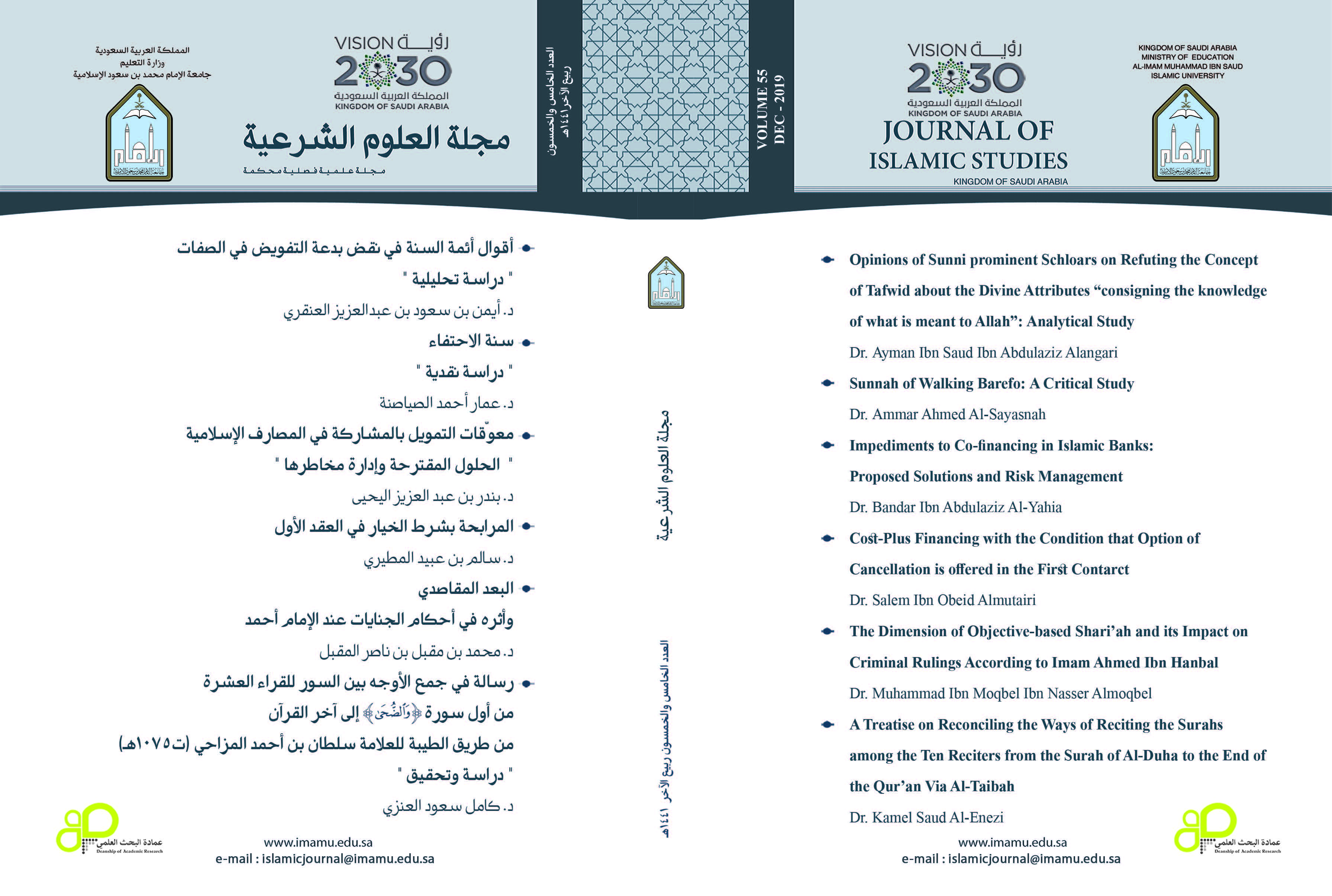The Dimension of Objective-based Shari’ah and its Impact on Criminal Rulings According to Imam Ahmed Ibn Hanbal
Abstract
Imam Ahmad Ibn Hanbal, may Allah have mercy on him, is one of the imams who was interested in studying objectives of Shari’ah and their impact on rulings in line with the texts and injununctions of Shari’ah. This paper discusses the dimension of objective-based shari’ah and its impact on criminal rulings. It focuses on how Ibn Hanbal paid attention to these objectives in delicts by exploring his personal reasoning and opionions to identify the objective-based idications to protect the human life.
The paper consists of an overview, an introduction, three sections and a conclusion. Section One focuses on the protection of the human soul and its impact on the jurisprudence of Ahmed Ibn Hanbal. Section Two deals with the general objectives and their impact on the jurisprudence of Ahmed Ibn Hanbal. Section Three addresses the specific objectives and their impact on the jurisprudence of Ahmed Ibn Hanbal.
The study adopts the deductive method for its relevance to the topic of the research. Finally, the paper lists a number of finding, the most important of which are the following: Respecting the human soul and protecting it; it must be deemed inviolable. The public order and security must be maintained. Al-Imam Ahmed follows the Fiqh of ease and relief of difficulties in his opinion about the sharing of Diyah (indemnity) among the family of the convict. Ibn Hanbal amplifies the punishment in Diyah (indemnity) against he who attacks the human reason or its functionality. The objective-based thinking is an original method for Al-imam Ahmed, may Allah have mercy on him, though it is lately explored.




